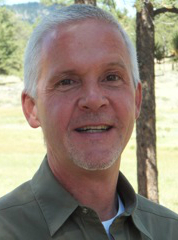SMC Speaks Vol. 1: Executive Director Michael Gayner Discusses Leadership (and plays a flute)
By Travis Newbill
SMC Speaks is a recurring feature on this blog, through which our readers may come to know–and enjoy, no doubt–the people who comprise our unique and flavorful community, and the vision that we collectively aspire to manifest.
 Among his friends and throughout much of the Shambhala community, Michael Gayner is well known to be an exquisite host. With the artful touch of a jazz pianist, Michael seems to offer the just right stuff, in just the right amount, with keen regard for timing and space.
Among his friends and throughout much of the Shambhala community, Michael Gayner is well known to be an exquisite host. With the artful touch of a jazz pianist, Michael seems to offer the just right stuff, in just the right amount, with keen regard for timing and space.
To continue the metaphor, he offers a few notes and then sits back and lets the tune unfold a bit, listening deeply to the air and fellow players around him before chiming in again to propel the event forward. As Chögyam Trungpa Rinpoche might say, he allows things to flower.
Michael’s approach to leadership as the Executive Director of Shambhala Mountain Center has a similar feel. He describes his role as “supportive” and “nurturing”–words he also uses when recalling the first full-time job he held at SMC–fundraiser for the Great Stupa of Dharmakaya. That was back in 2000-2001, just before Michael served as head of personal security for Sakyong Mipham Rinpoche–a position which took him all over the world training members of the community in creating and maintaining a safe environment in which the teachings can flourish. To be sure, none of the gigs listed above have been free of challenge, and that’s likely why Michael has accepted the positions.
In a recent conversation over dinner at his house (he is indeed a lovely host!), Michael described his manner of leading and the way he relates to, and grows from, some of the challenges that come with the territory. And, after dinner–in between tea and a nightcap–Michael delighted his guest with a performance of a Japanese folk song on his shakuhachi (please see the video below).
So your first time at SMC was your seminary?
Michael Gayner: Right. And my permanent ROTA was child care. It’s funny, I’ve baby-sat a number of the people who I’ve worked with on staff here.
And then you came back as head of fundraising for the Stupa. How was that?
I wasn’t painting anything, I wasn’t building anything, I was just kind of behind everyone’s efforts. It was more of a sense of holding the situation than of doing something. That has a particular flavor to it–that quality of supporting and nurturing other peoples’ activity. And, of course, it is inherently its own activity as well.
How does that compare to your position now?
It’s very similar. There are projects that are on my lap, but more often than not, my work is about supporting other people. For example, staff culture–it’s not something I can do. Rather, it’s something that I need to help people understand, and bring in other people to explain it, in order to create a situation where it becomes true for people, experientially. It’s not something I can build, but something that I have to nurture.
Does the situation of not being able to actively do something become frustrating?
One of the interesting things about being in leadership in the dharma is that one sees–when frustration arises–the desire to make something happen; to use the hammer, so to speak. You see how aggression arises so quickly and is such a potential expedient answer to something. But when you’re working at this kind of job–where you’re really trying to create something that is a dharmic approach to professional activity, community existence, and relating with the natural environment–that aggression always backfires on you.
So, you gently put the hammer back in the toolbox.
Right. You start to become very tuned-in to the arising of aggression within yourself, and you have to learn to really quickly work with that and take the longer route–usually of letting people take their time to understand something.
~~~
Stay tuned to this blog for more conversation with the fearless leader of Shambhala Mountain Center, as well as with other members of the community. Next time, you’ll learn more about Michael’s vision for developing staff culture at SMC…as well as a thing or two about his experience as a sumo wrestler.
For now, enjoy the music:

